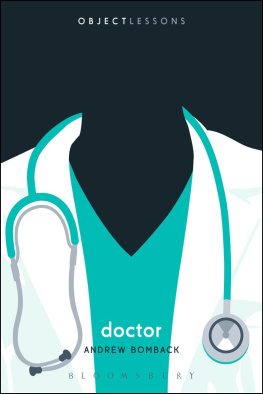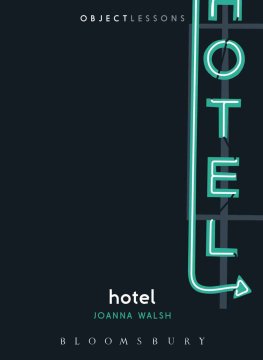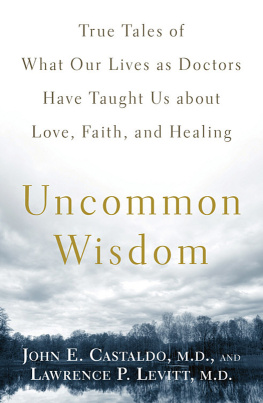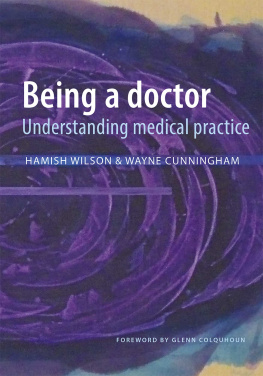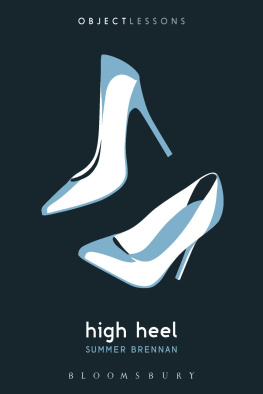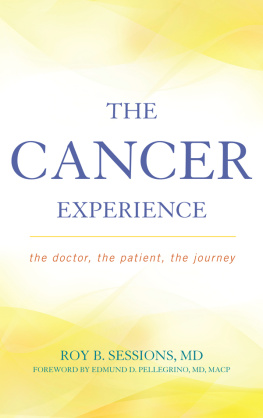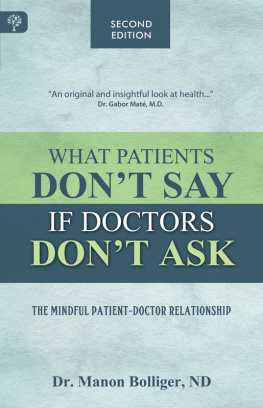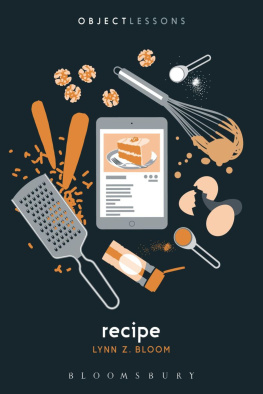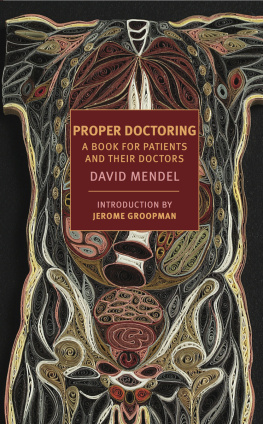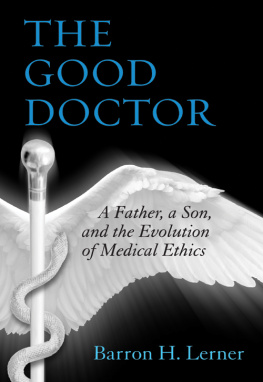The Object Lessons series achieves something very close to magic: the books take ordinaryeven banalobjects and animate them with a rich history of invention, political struggle, science, and popular mythology. Filled with fascinating details and conveyed in sharp, accessible prose, the books make the everyday world come to life. Be warned: once youve read a few of these, youll start walking around your house, picking up random objects, and musing aloud: I wonder what the story is behind this thing?
Steven Johnson, author of Where Good Ideas
Come From and How We Got to Now
Object Lessons describes themselves as short, beautiful books, and to that, Ill say, amen.... If you read enough Object Lessons books, youll fill your head with plenty of trivia to amaze and annoy your friends and loved onescaution recommended on pontificating on the objects surrounding you. More importantly, though... they inspire us to take a second look at parts of the everyday that weve taken for granted. These are not so much lessons about the objects themselves, but opportunities for self-reflection and storytelling. They remind us that we are surrounded by a wondrous world, as long as we care to look.
John Warner, The Chicago Tribune
In 1957 the French critic and semiotician Roland Barthes published Mythologies , a groundbreaking series of essays in which he analysed the popular culture of his day, from laundry detergent to the face of Greta Garbo, professional wrestling to the Citron DS. This series of short books, Object Lessons, continues the tradition.
Melissa Harrison, Financial Times
Though short, at roughly 25,000 words apiece, these books are anything but slight.
Marina Benjamin, New Statesman
The Object Lessons project, edited by game theory legend Ian Bogost and cultural studies academic Christopher Schaberg, commissions short essays and small, beautiful books about everyday objects from shipping containers to toast. The Atlantic hosts a collection of mini object-lessons.... More substantive is Bloomsburys collection of small, gorgeously designed books that delve into their subjects in much more depth.
Cory Doctorow, Boing Boing
The joy of the series... lies in encountering the various turns through which each of their authors has been put by his or her object. The object predominates, sits squarely center stage, directs the action. The object decides the genre, the chronology, and the limits of the study. Accordingly, the author has to take her cue from the thing she chose or that chose her. The result is a wonderfully uneven series of books, each one a thing unto itself.
Julian Yates, Los Angeles Review of Books
... edifying and entertaining... perfect for slipping in a pocket and pulling out when life is on hold.
Sarah Murdoch, Toronto Star
... a sensibility somewhere between Roland Barthes and Wes Anderson.
Simon Reynolds, author of Retromania: Pop Cultures
Addiction to Its Own Past
O B J E C T L E S S O N S
A book series about the hidden lives of ordinary things.
Series Editors:
Ian Bogost and Christopher Schaberg
Advisory Board:
Sara Ahmed, Jane Bennett, Jeffrey Jerome Cohen, Johanna Drucker, Raiford Guins, Graham Harman, rene hoogland, Pam Houston, Eileen Joy, Douglas Kahn, Daniel Miller, Esther Milne, Timothy Morton, Kathleen Stewart, Nigel Thrift, Rob Walker, Michele White.
In association with
Books in the series
Remote Control by Caetlin Benson-Allott
Golf Ball by Harry Brown
Drivers License by Meredith Castile
Drone by Adam Rothstein
Silence by John Biguenet
Glass by John Garrison
Phone Booth by Ariana Kelly
Refrigerator by Jonathan Rees
Waste by Brian Thill
Hotel by Joanna Walsh
Hood by Alison Kinney
Dust by Michael Marder
Shipping Container by Craig Martin
Cigarette Lighter by Jack Pendarvis
Bookshelf by Lydia Pyne
Password by Martin Paul Eve
Questionnaire by Evan Kindley
Hair by Scott Lowe
Bread by Scott Cutler Shershow
Tree by Matthew Battles
Earth by Jeffrey Jerome Cohen and Linda T. Elkins-Tanton
Traffic by Paul Josephson
Egg by Nicole Walker
Sock by Kim Adrian
Eye Chart by William Germano
Whale Song by Margret Grebowicz
Tumor by Anna Leahy
Jet Lag by Christopher J. Lee
Shopping Mall by Matthew Newton
Personal Stereo by Rebecca Tuhus-Dubrow
Veil by Rafia Zakaria
Burger by Carol J. Adams
High Heel by Summer Brennan
Luggage by Susan Harlan
Souvenir by Rolf Potts
Rust by Jean-Michel Rabat
Doctor by Andrew Bomback
Blanket by Kara Thompson
Train by A. N. Devers (forthcoming)
Pixel by Ian Epstein (forthcoming)
Fog by Stephen Sparks (forthcoming)
For my father, the best doctor Ill ever know
George: When I asked him if it was cancer, he didnt give me a get outta here. Thats what I wanted to hear. Cancer? Get outta here!
erry: Well, maybe he doesnt have a get outta here kind of personality.
George: How could you be a doctor and not say get outta here? It should be part of the training at medical school. Cancer? Get outta here! Go home! What are you, crazy? Its a little test. Its nothing. Youre a real nut. You know that?
SEINFELD, THE PILOT (PART ONE)
Contents
To protect patient and doctor confidentiality, names and identifying details throughout this book have been changed, with the sole exception of members of my family.
I took a week off after my son, Mateo, was born. Xenia and I kept our three-year-old daughter, Juno, home from daycare that week, too. On the morning of my first day back at work, Juno watched me making lunches for the two of us and asked why I had to go back to work. Porque yo soy un doctor , I said. Y tengo que ayudar los enfermos . I spoke to her in Spanish because Xenia is Mexican-American and were raising our children to be bilingual. Id been learning the language since Junos birth via her childrens books, songs, and television shows. When my Spanish-speaking patients complimented me on how much better I was handling the language, I joked that I still spoke Spanish like a three-year-old. My answer that morning might have been more nuanced and, therefore, more accurate if Id used English.
Junos question of why I had to go back to work was a three-year-olds way of dancing around her real question: What, exactly, do you do when you leave our house and our family for ten hours each day? Answering that Im a doctor and I help the sick wasnt even an original answer. Again, I deflect some of the blame to my limited Spanish. Juno had a set of sixty Spanish flashcards called Quien? thirty with a Quien question, and thirty with their corresponding answers. Shed throw all sixty on the floor and try to match the correct question and answer. When she brought her proposed matches to me, Id read the cards aloud to her and say buen trabajo if she got the right pair. One pair read: Quien ayuda a la gente cuando estan enfermos? La doctora. That morning, as I made matching almond butter and jelly sandwiches for Juno and me, I was reciting the script from a childrens game.

